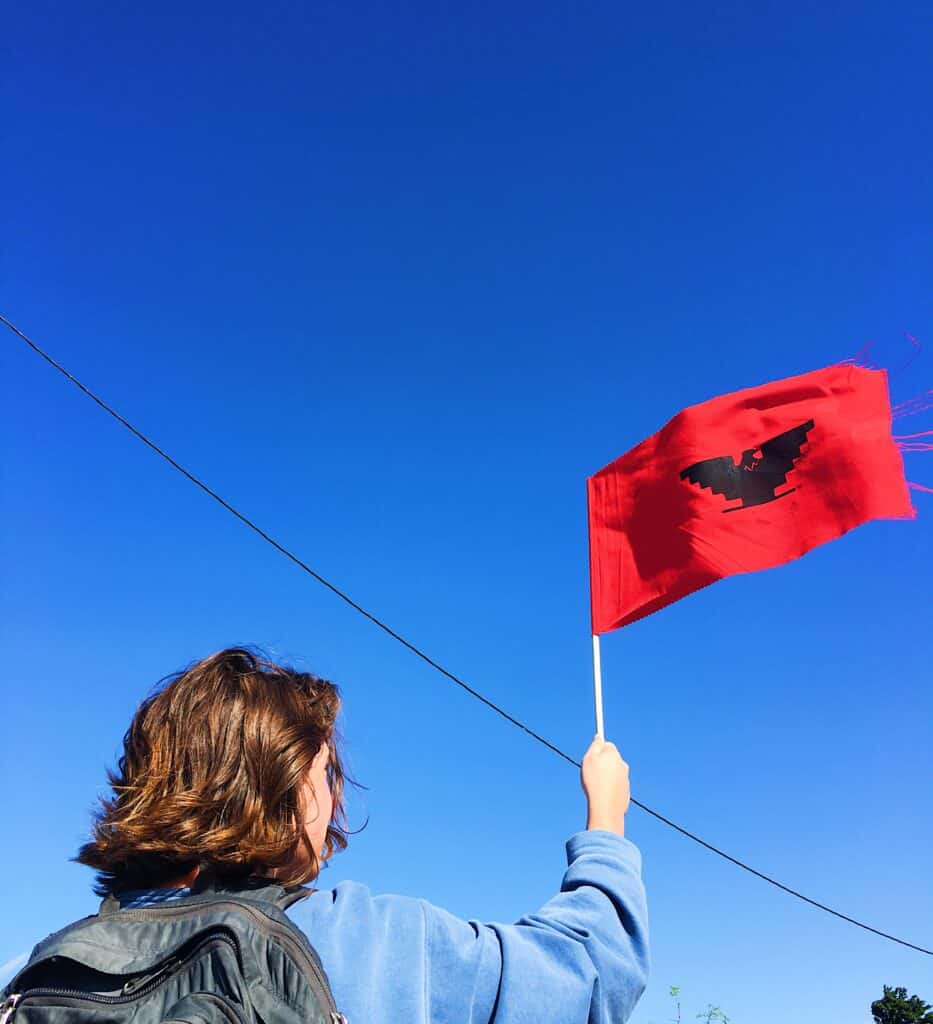– Piper Strzelecki, 2021 SAF intern
East Coast Migrant Head Start Program

During my summer with SAF, one of the most significant disparities I noticed came to my attention at a free mobile health clinic that we hosted at a Head Start Center for migrant farmworkers and their families. This whole day highlighted the lack of resources in the healthcare system and specifically the lack of resources they allocate to marginalized communities.
The event was scheduled for 3:30-6:30pm, so many people came after a full day of manual agricultural work. As people arrived, they completed the intake paperwork, then waited for the doctor to call their name. The wait was typically an hour or more. As a group of men walked up to the registration table then moved to a circle of chairs to start on the stack of forms, I walked over and asked them, “Por favor, dime si tienen preguntas.” One of the men made his way to where I was standing and hovered around me with his arms crossed. He peered at the clipboard in my hands, then back up at me. I offered to help him with the complicated stack of forms and he accepted. I straightened the clipboard and started filling in his information: name, address, date of birth, reason for visiting the clinic. At this point, the clinic had ended half an hour ago, but there were still a dozen families waiting to be seen. After turning in his forms, Javier (pseudonym) and I plopped into two metal seats in the grass near the intake table.
After an hour of waiting and filling out paperwork, a nurse finally called Javier’s name and I followed him into the examination area. The appointment began with a long series of extremely personal medical and mental health questions. Javier was given a Post-It note with his reason for visiting scribbled on it. He handed it to the nurse and she quickly glanced at it. She typed into the computer and began a series of rapid-fire questions. “When was the last time you visited the doctor?” In the pause, he looked at me and I began, “Cuando fue--” but I was cut off by the nurse. “He’s translating,” she snapped with a nod to her laptop. After a delay, I heard a voice repeat the question in Spanish. It seemed this nurse had switched to a telehealth phone call instead of using an in-person interpreter. The questioning continued without me, but I stayed by Javier's side, just in case. The questions became more intimate, Do you drink or smoke? How often do you drink or smoke? When was the last time you felt hopeless or depressed? I tried my best not to listen to the responses, but it is almost impossible in the small room.
After the pre-screening, Javier moved to the other side of the room to be examined by the physician. After this test, the doctor asked, “What brings you in today?” I interpreted this to Javier and he replied, “Tengo dolor de muelas,” he said, rubbing a hand over his jaw. A toothache. The doctor peered in his mouth for just a few seconds before she declared, “Well, yeah. You’ve got an infection. When was the last time you went to the dentist?” We went over his medical history for the dozenth time that day. He held up the antibiotics that he had been taking and I interpreted the amount he had been taking. The doctor was sitting at her computer and declared, “I’ll order you a prescription for antibiotics, but you need to see a dentist. Which pharmacy do you use?” I told this to him and he shook his head, “No sé”. I told the doctor that he arrived very recently to the United States and may not be familiar with the area yet. She selected the one closest to where the clinic was and explained that he must pick up the medication in 24 hours or the request will expire and he’ll have to see a doctor again. I explained that he must get the medication tomorrow and asked if he would be able to pick it up after work. He replied that he would be able to and asked where he could go to the dentist. I asked the doctor if the free clinic offers dental services anywhere and she told me that they do, but only in Charleston. An hour and a half away. After hours of waiting, Javier’s appointment is over in minutes.
This whole day highlighted the lack of resources in the healthcare system and specifically the lack of resources allocated to marginalized communities. I noticed the lack of privacy and dignity given to these workers who came to visit the clinic. They had to wait for hours in the heat after a full day of work. The doctor had barely any time to spend with each patient before having to move on to the next one. The patient’s personal information had to be shared with an extra person (the interpreter) whom they may have never met before. I do not blame the healthcare workers or the individual clinic, but I do blame the systemic disparities in who is receiving the medical care they need and deserve.
